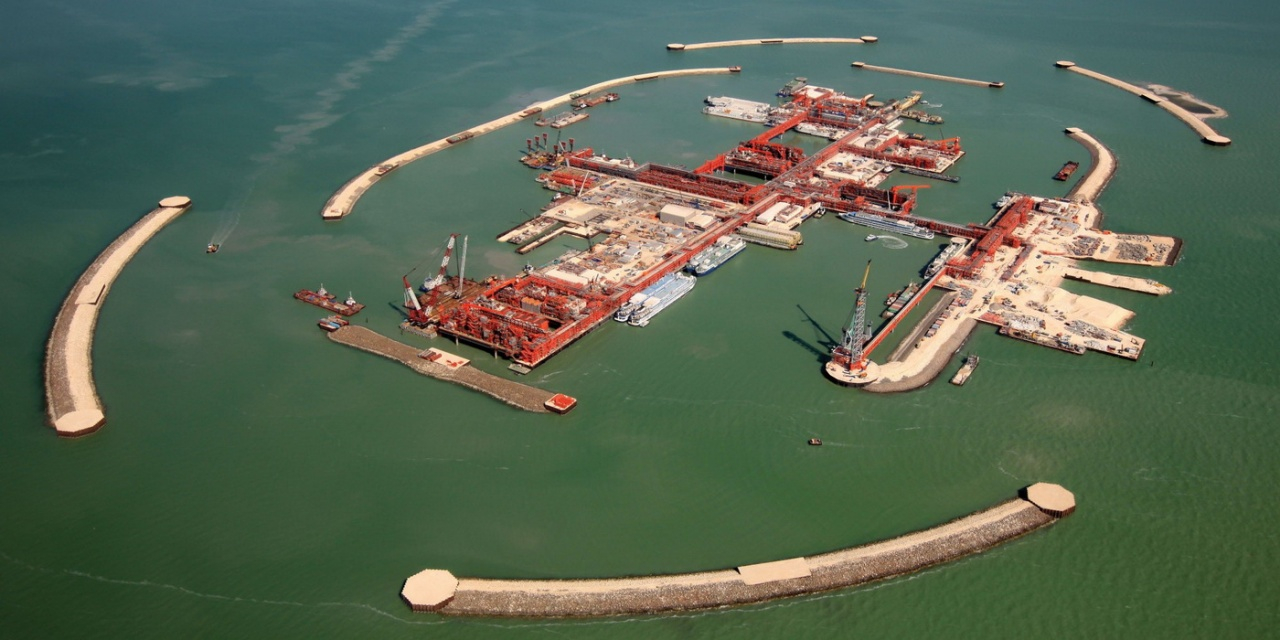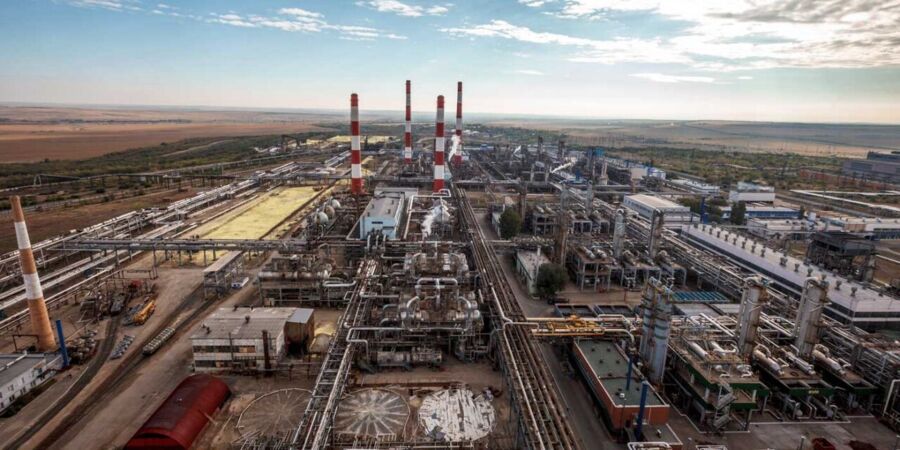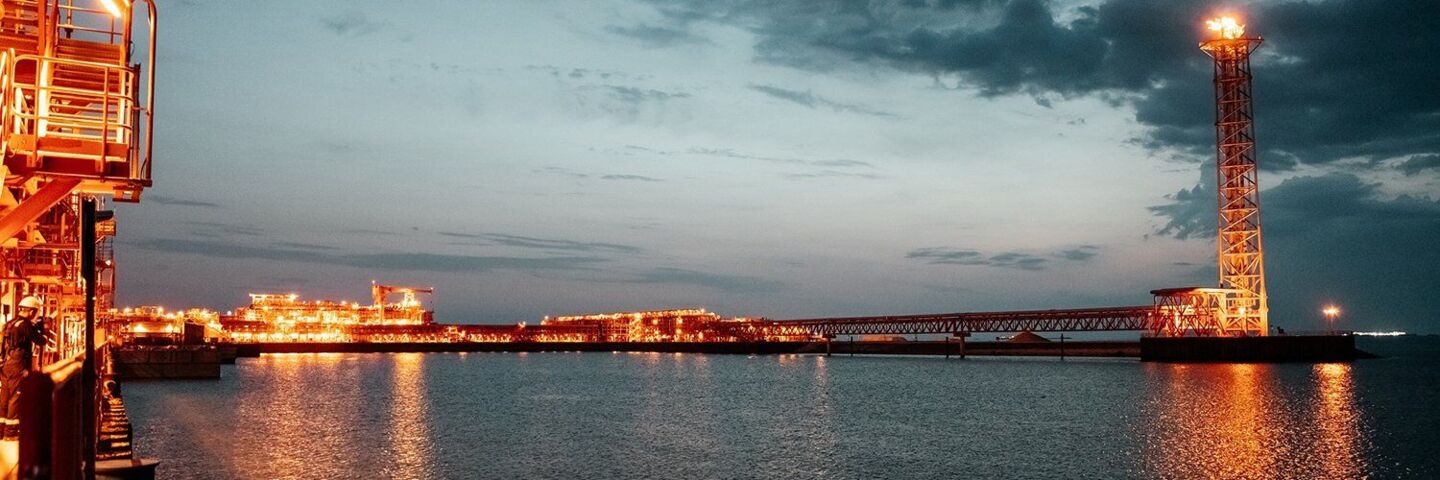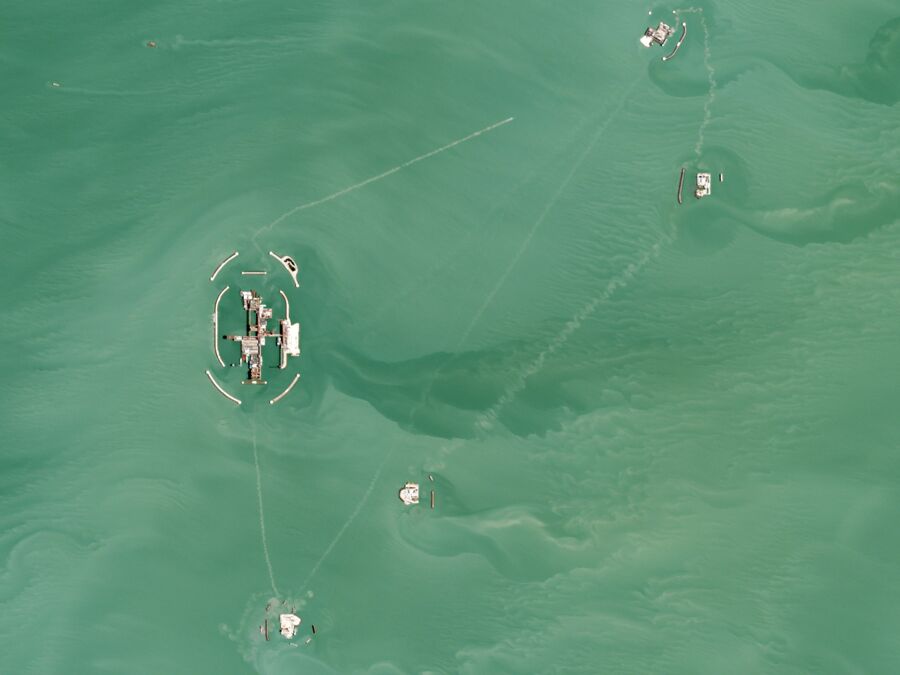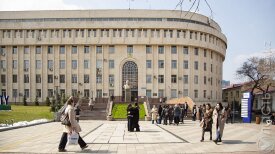Kazakhstan’s government is seeking to recover billions of dollars from foreign investors at its largest oil and gas fields, in what could be a blow aimed against old business elites and a way to stretch out production and export plans, experts say.
The sums for which the government is suing the companies are so unprecedented that the arbitration could lead to a change in the projects’ ownership, which could in turn strain the country’s business environment.
On April 11, energy minister Almasadam Satkaliyev confirmed earlier rumors that the government would seek to recalculate its oil income in two projects via arbitration. According to the latest data, through PSA, the government agency in charge of negotiating and managing production-sharing agreements, Kazakhstan asked the operators of the Kashagan and Karachaganak oil fields to set aside a total of $16.5 billion to compensate for inflated costs.
Against the North Caspian Operating Company (NCOC), which operates the Kashagan offshore oil field, the government seeks to recover around $13 billion. Against Karachaganak Petroleum Operating (KPO), which exploits a large gas and condensate field in the north-west of the country, the government plans to recalculate revenues for $3.5 billion.
Production-sharing contracts are secret and their terms are shared with the public only partially during negotiations with the government.
Economist Rassul Rysmambetov told Vlast that the most pressing issue is not the sanctity of contracts, but the fine print.
“The essence of the claim does not question production sharing agreements per se, but aims for a revision of costs within these contracts.”
All parties involved, the oil and gas consortia, and the ministry, and the PSA agency declined to answer questions posed by Vlast regarding the dispute.
The NCOC consortium said in an emailed response that its members, with the exception of state-controlled, Netherlands-registered KMG Kashagan BV, and the government “have a number of disputes concerning the application of certain [contractual] provisions, which are subject to arbitration and expert determination.”
However, the company said that “due to the confidential nature of the proceedings, we are unable to provide further comments.”
On its part, the government did not answer a range of specific questions filed by Vlast, citing confidentiality.
“The issues raised are quite sensitive and are of confidential nature,” vice-minister of energy Askhat Khasenov told Vlast in a written correspondence.
However, in an intricate statement, the government also hinted that it failed to reach an amicable compromise with the consortium.
“[The government] has always created the most favorable conditions for investors and expressed its readiness to resolve issues through a constructive dialogue. Yet, a constructive dialogue always requires the desire and readiness of all parties for such a dialogue,” the statement read.
This is perhaps the most surprising aspect of the matter: The parties were unable to establish a “constructive dialogue”. Similar disputes had been previously resolved behind closed doors, without the need for an international arbitration.
Investor-Friendly PSAs
Production-sharing agreements are types of contracts that are inherently favorable to investors. Once the agreement is signed, the investor finances exploration and production. Once the product - in this case oil and gas - reaches the market, the proceeds of the sales go back almost entirely to the investor, because the agreement stipulates that costs must be recovered first, and then the earnings can be “shared” with the government.
“The PSA contract always protects the interests of investors to a greater extent. Because all costs are reimbursed [first],” oil and gas analyst Abzal Narymbetov told Azattyq in an interview.
The first oil being sold is even called “cost oil”, because its purpose is to repay the investors of their initial expenditure. And the two largest projects in Kazakhstan now the subject of arbitration have attracted tens, some say hundreds of billions of dollars of investment.
Rysmambetov, the economist, said this type of contract is essentially a loan.
“Kazakhstan believes that the consortia partners overestimated their recoverable expenditure and also that both fields are being developed for too long,” Rysmambetov speculated.
While Karachaganak had already been developed during Soviet times and was already in production, Kashagan was being explored when the contract was signed.
At Kashagan, the start of production was repeatedly delayed until 2013, when the consortium pompously extracted the first several thousand barrels, only to hastily halt production because of a pipeline leak between the offshore field and the onshore facilities. It could only resume operations, and finally allow for the state budget to receive part of its earnings, in 2016.
“For Kashagan, according to some sources, the state now receives a profit of around 2% [of NCOC’s total],” Narymbetov said.
In 2007, a New York Times article led with “Kazakhstan wants either to raise its stake or receive compensation for cost overruns and delays in the Kashagan offshore field”. This was an argument brought forward by then-President Nursultan Nazarbayev during a regular meeting with the Foreign Investors Council, an informal consultative body that meets yearly to discuss the country’s business climate.
In 2009, KPO faced a tough tax inspection, as it allegedly failed to pay 8 billion tenge ($54 million at the time). After more tax and earnings disputes, the KPO consortium settled in 2018 by paying $1.1 billion to the state budget.
In April, after the news of the arbitration proceedings broke, Azat Peruashev, a member of parliament and head of the Ak Zhol party, said the government should disclose the terms of the production-sharing agreements and that it should ultimately increase its share in the projects.
“We believe that the time has come to change the situation and revise the terms of these production-sharing agreements, and increase Kazakhstan’s share [in the projects],” Peruashev told the parliament.
That the disputes are now being brought to an arbitration court represents a break with the previous practice of resolving consortium-government spats at the negotiating table.
Turning the Tables
Gian Marco Moisé, who defended a doctoral thesis studying arbitration cases involving Kazakhstan at Dublin City University, told Vlast that this approach to international arbitration is novel and somewhat hard to decipher.
“International arbitrations are often used by foreign investors to fend off the administrative assaults of governments who seized assets in an unorthodox manner. The fact that now the government is using them may signal that the new Kazakhstani leadership may be willing to expose not only companies’ past sins, but also ‘old Kazakhstan’ business actors, as a way to get rid of powerful figures in the industry,” Moisé said.
The two consortia had already been in talks for the renegotiation of tax and budget calculations for years. Moisé argues that these arbitration cases could signal a failure to come to an agreement.
“The cost recalculation timeline suggested in the arbitration includes periods for which the government and companies had already re-negotiated contracts clauses, particularly in reference to tax revenues,” Moisé told Vlast.
The rules of the game for both Kashagan and Karachaganak were set in the mid-1990s and the early 2000s. At this time, the government concluded with international investors a range of production-sharing agreements. In 1997, the KPO consortium started exploiting the Karachaganak gas and condensate field. Months later another consortium signed the agreement to explore an offshore oil field in the Caspian Sea, later known as Kashagan.
Since then, renegotiations have happened regularly with disputes leading to changes in shareholding, the exit of major players and the entry of new investors. Importantly, in a few key occasions, these renegotiations led to the national company, Kazmunaigas, acquiring a minority stake in both projects.
After the latest renegotiation rounds, the shareholders of the KPO consortium are Eni (29.25%), BG (29.25%), Chevron (18%), Lukoil (13.5%), and Kazmunaigas (10%).
The shareholding of the NCOC consortium operating Kashagan is split between Kazmunaigas (16.88%), Eni (16.81%), Shell (16.81 %), ExxonMobil (16.81 %), TotalEnergies (16.81 %), CNPC (8.33%) and Inpex (7.56%).
Long Disputes Could Affect the Investment Climate
Benjamin Godwin, associate director at PRISM, a political risk consulting firm in London, added that kicking off arbitration proceedings could negatively affect the business environment in Kazakhstan.
“These disputes could take a lot of time and money to be resolved. This happens at a time when the government and the consortia are planning major investments for both Kashagan and Karachaganak. From the point of view of foreign investors, these legal actions can be seen as detrimental to Kazakhstan's investment climate,” Godwin told Vlast via telephone.
According to Upstream Online, the goal of the government is to grow its presence in the consortium operating the Kashagan field.
“The ministry’s claims against NCOC come amid suggestions that the government is looking to increase its stake in the Kashagan development”.
Moisé agreed with Godwin’s analysis, but disagreed with the argument brought forward at Upstream.
“The time span of arbitral litigation will be counted in years. This makes it unlikely that the government would use this tool to take control of shares in the consortia. This is why the hypothesis of achieving political objectives, although still unclear, remains the most likely.” Moisé concluded.
Speaking on condition of anonymity, a consultant in London focusing on Kazakhstan’s oil production and export said the choice to resolve the dispute through an arbitration is unusual.
Another angle that could make this arbitration a viable excuse for all parties to slow down production and to reassess their position within Kazakhstan’s energy sector is the country’s limited export capacity, said Rysmambetov.
“Should Kashagan launch its second phase, the Caspian Pipeline Consortium [or CPC, an international pipeline pumping oil via Russia to the Black Sea port of Novorossiysk] will definitely not be enough. Another potential export outlet, the Baku-Tbilisi-Ceyhan pipeline has an even lower capacity and must be serviced via tankers across the Caspian. This means shipping will be more expensive. In the light of the war in Ukraine, the CPC can hypothetically be shut down, which means increasing production could be a misstep,” Rysmambetov explained.
Kazakhstan has tried to diversify its oil export routes and most recently it pumped some of its oil via the Druzhba pipeline, also through Russia, to German refineries. The continuous shutdowns of the CPC last year served as a reminder that pipeline export routes could be used as a political tool.
Yet, Rysmambetov also reminded of the costs associated with slower production.
Whichever the reason for the dispute, the arbitration scenario is poised to increase legal costs and impact foreign investors’ trust in Kazakhstan’s rule of law. Should the government and foreign companies fight tooth and nail in court, the country’s energy sector could see a significant shakeup.
Поддержите журналистику, которой доверяют.
